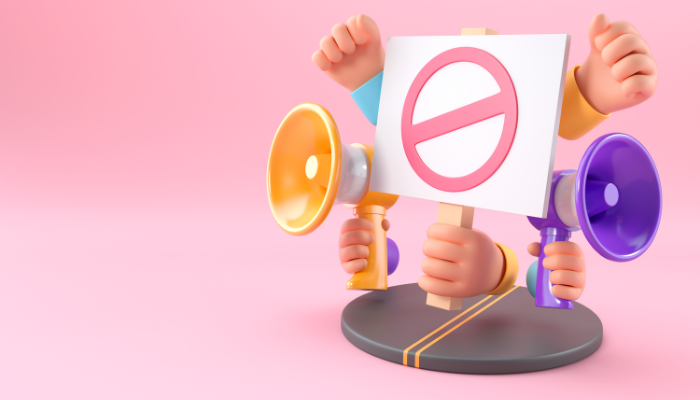Workplace grievances aren’t just an HR inconvenience. They’re a sign that something within the business isn’t working, and if ignored, they can quickly escalate into long-term problems, damaging productivity, morale, and even your reputation.
Whether it’s a complaint about a manager, a pay dispute, or allegations of bullying, every grievance deserves proper attention. It’s HR’s job to manage that process, acting fairly, impartially, and in line with the law. But HR’s role goes far beyond simply ticking boxes.
What is a Workplace Grievance?
A workplace grievance is a formal or informal complaint raised by an employee about something they believe is unfair, discriminatory, or against company policy.

Grievances can be raised for a wide range of issues, including:
1. Bullying or Harassment
This includes unwanted behaviour from colleagues or managers that causes emotional distress or creates a hostile work environment. It could involve verbal abuse, intimidation, exclusion, or inappropriate jokes. These cases require sensitive handling and, if proven, may lead to formal disciplinary action.
2. Discrimination
Employees may raise concerns about unfair treatment based on protected characteristics such as age, gender, race, disability, religion, or sexual orientation. These cases often involve breaches of the Equality Act 2010 and need to be investigated with a clear legal framework in mind.
3. Pay Disputes
This may include claims of unpaid wages, incorrect salary calculations, missing bonuses, or unequal pay for the same role. In such cases, accurate payroll records and compliance with national minimum wage legislation become vital.
4. Breach of Contract
Employees may believe their contract terms have been broken, for example, working hours being extended without agreement, lack of agreed benefits, or changes to job duties without consultation.
5. Poor Working Conditions
Complaints about unsafe or unsuitable working conditions, lack of equipment, or excessive workloads may arise. These grievances often link to breaches of the Health and Safety at Work Act 1974.
6. Interpersonal Conflict
Sometimes, grievances are more about breakdowns in relationships, such as tensions between colleagues, poor communication, or clashes in working styles. While not always legal issues, these conflicts can still significantly impact team performance.
Why Are Grievance Procedures Important?
Grievances that are poorly handled or ignored can escalate. This might lead to:
- Reduced morale and engagement
- Increased staff turnover
- Legal claims and tribunal proceedings
- Damage to your employer brand
- A toxic workplace culture
By addressing issues promptly and professionally, HR teams help protect the business while demonstrating care for employee wellbeing.
Clear processes also reduce legal risks and ensure compliance with employment laws, including the ACAS Code of Practice on Disciplinary and Grievance Procedures.
The Role of HR in Grievance Resolution
HR plays a pivotal role in designing, executing, and monitoring grievance processes. Here’s what that typically involves:
1. Developing a Clear Grievance Policy
The foundation of any effective grievance system is a clearly written policy. HR teams are responsible for drafting and maintaining this, ensuring it covers:
- What counts as a grievance
- How employees should raise a complaint (formally or informally)
- Who will handle the process
- Timescales for investigation and resolution
What happens if the employee isn’t satisfied with the outcome
This policy should be shared with all staff and reviewed regularly. It not only provides a roadmap for employees but protects the employer by demonstrating a commitment to fair and transparent procedures.
2. Being an Objective, Neutral Party
When a grievance is raised, HR must act without bias. Their role is to hear both sides of the story, avoid assumptions, and approach the issue with professionalism. This impartiality helps employees feel safe and supported, which is critical in encouraging them to speak up.
In cases where HR is too close to the individuals involved, it may be necessary to bring in external HR consultants, like those offered through PayEscape’s HR services.
3. Managing the Investigation Process
If the grievance is formal, HR will coordinate a structured investigation. This often includes:
- Reviewing documentation (emails, contracts, time logs, etc.)
- Interviewing the complainant, accused, and any witnesses
- Taking detailed notes and ensuring confidentiality
- Evaluating whether the grievance is upheld based on evidence
All findings must be documented, securely stored, and communicated clearly to the parties involved.
4. Facilitating Mediation and Conflict Resolution
Not every complaint needs to end in disciplinary action. Often, HR can step in as a mediator to help resolve issues through guided discussions. This might involve:
- Clarifying misunderstandings or miscommunications
- Encouraging apologies or compromises
- Recommending team training or coaching
- Adjusting roles, responsibilities, or schedules to avoid future clashes
When done correctly, mediation can rebuild relationships, boost morale, and prevent recurring issues.
5. Ensuring Legal and Policy Compliance
HR must ensure that every grievance process aligns with UK employment law. That includes:
- Following the ACAS Code of Practice
- Complying with data protection regulations (GDPR)
- Ensuring equality under the Equality Act 2010
- Avoiding constructive dismissal through mismanagement
Failure to comply may lead to tribunals, fines, or reputational damage. That’s why documentation, timelines, and evidence tracking are essential, and PayEscape’s HR software is built to support these requirements.
6. Following Up After the Outcome
A resolution doesn’t end once a decision is made. HR should check in with the employee after the fact to ensure:
- The issue hasn’t reoccurred
- Any adjustments have been successfully implemented
- The employee feels safe and heard
- No further support is required, such as EAP services or counselling
- This ongoing care strengthens employee trust and prevents future grievances.
How PayEscape Supports HR Teams
At PayEscape, we understand the pressure on HR departments, especially in SMEs or growing businesses. Handling grievances requires organisation, precision, and compliance. That’s where our cloud-based HR software comes in. With our platform, you can:
- Securely log and track grievance cases from start to finish
- Set automated follow-up reminders for key dates or employee check-ins
- Store all employee documents and evidence in one secure location
- Access standardised HR policies and update them as needed
- Generate reports for management or legal purposes
We also offer expert HR consultancy for businesses that don’t have an internal HR team or need external support with complex cases. Whether it’s reviewing your policy or managing sensitive disputes, our consultants are on hand to help.
Final Thoughts
Grievances are not just complaints. They are opportunities to improve your organisation’s culture, trust, and resilience. But only when handled correctly.
HR teams are responsible for ensuring every grievance is dealt with professionally, fairly, and in line with the law. From policy creation to post-resolution follow-ups, their role is critical to safeguarding both people and business.
With the right tools, like PayEscape’s HR software, grievance management becomes less about admin and more about making a meaningful difference. Want to simplify your HR processes? Get in touch with PayEscape to see how our HR solutions can support your business.













